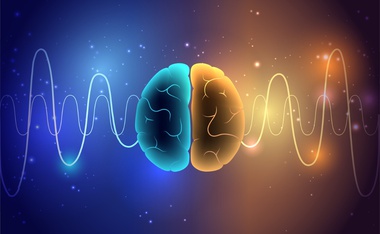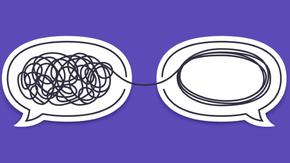The views expressed in our content reflect individual perspectives and do not represent the authoritative views of the Baha'i Faith.
Shockingly, we’re all opioid users, in a weird way. Human brains have at least four organically-occurring opioid receptors, and we each produce naturally-occurring opioids called endorphins and encephalins.
Actually, the word endorphins is a simple contraction of the term endogenous morphines, which literally means “a morphine-like substance that originates within the body.” Endorphins, known as “nature’s morphine,” are peptides — neurotransmitters — produced by the pituitary gland in the brain.
Endorphins block the perception of pain and increase feelings of well-being.
RELATED: Finding a Spiritual Solution to the Fentanyl Overdose Epidemic
In other words, we all make our own natural opioids — built-in, highly effective pain relievers.
We can increase the production of the natural endorphins in our own bodies with vigorous exercise — and even by going to a comedy club or watching a funny movie. Seriously. If you’ve ever heard the phrase “runner’s high,” you already understand something about how exercise releases endorphins into the bloodstream. Several studies have also shown that laughter stimulates the body’s endorphin production.
A comedian I once heard called extended, hearty laughter “jogging for the insides,” and it turns out he’s scientifically correct.
Amazingly, endorphins also mediate complex social behaviors in humans, and scientists believe they’re heavily involved in helping us form stable, emotionally committed relationships. Love, in other words, may be an endorphin-related emotion. Remember how high you felt when you first fell in love? Those were your endorphins, rushing around your brain and making you feel giddy, gleeful, and gob-smacked.
With that in mind, you can probably start to understand why the opioids like heroin and opium, and the synthetic opioids like fentanyl, are so addictive — they produce an artificial, temporary sense of bliss.
However, for reasons science and medicine don’t yet fully understand, habitually taking any opioid drug, whether from a physician’s prescription or a street dealer, gradually signals our brains to reduce the production of endogenous opioids. That means the brain seems to inhibit, lower, and then stop producing its own endorphins when it senses the presence of other opioid compounds in the bloodstream. As a result, addicts become less and less able to feel any sense of well-being and joy without the drug.
That fact alone makes recovery from long-term opiate addiction very, very difficult. Because opioids powerfully mimic a natural substance, they literally subvert and eventually destroy the body’s innate capacity to decrease pain, to feel empathy for others, and, perhaps, even to love.
The Baha’i teachings pointed all of this out long before science confirmed it, as Abdu’l-Baha said in his book Some Answered Questions:
… capacity is of two kinds: innate and acquired. The innate capacity, which is the creation of God, is wholly and entirely good — in the innate nature there is no evil. The acquired capacity, however, can become the cause of evil. For example, God has created all men in such a fashion, and has given them such a capacity and disposition, that they are benefited by sugar and honey and are harmed or killed by poison. This is an innate capacity and disposition that God has bestowed equally upon all men. But man may begin little by little to take poison by ingesting a small quantity every day and gradually increasing it until he reaches the point where he would perish if he were not to consume several grams of opium every day, where his innate capacities are completely subverted. Consider how the innate capacity and disposition can be so completely changed, through variations of habit and training, as to be entirely perverted.
Clearly, we all know that heroin and the synthetic opioids are poison. Opiates kill people every day.
RELATED: The Dire Baha’i Warning About Opioids
The strongest synthetic opioids, fentanyl, and carfentanil, were originally developed as powerful anesthetics and as elephant and rhinoceros tranquilizers. Even in tiny airborne doses or absorbed through the skin, the fentanyl class of drugs can stop human respiration. Police departments now routinely issue respirators and protective clothing to officers who may come in contact with fentanyl during drug busts.
We have entered an era in human history when our drugs, prescribed or not, have become extremely deadly. Drugs have always been fatal when improperly used, but fentanyl fatalities have become a global epidemic.
So, what does that mean for drug policy? Should we conduct a “war on drugs” by attempting to eliminate the supply, or should we focus on the demand side of the equation by de-criminalizing addiction and treating it as a purely medical issue?
In the next essay in this series, we’ll explore some of the answers to those important questions.
















Comments
Sign in or create an account
Continue with Googleor